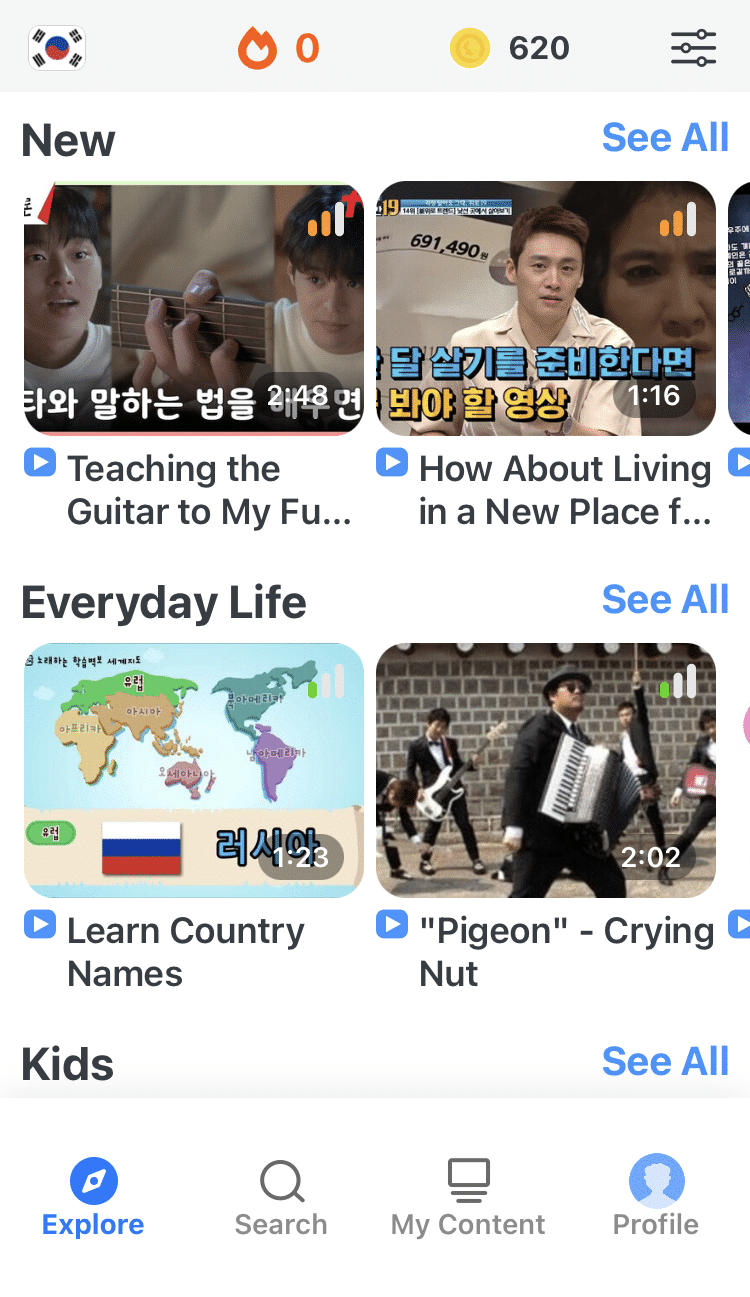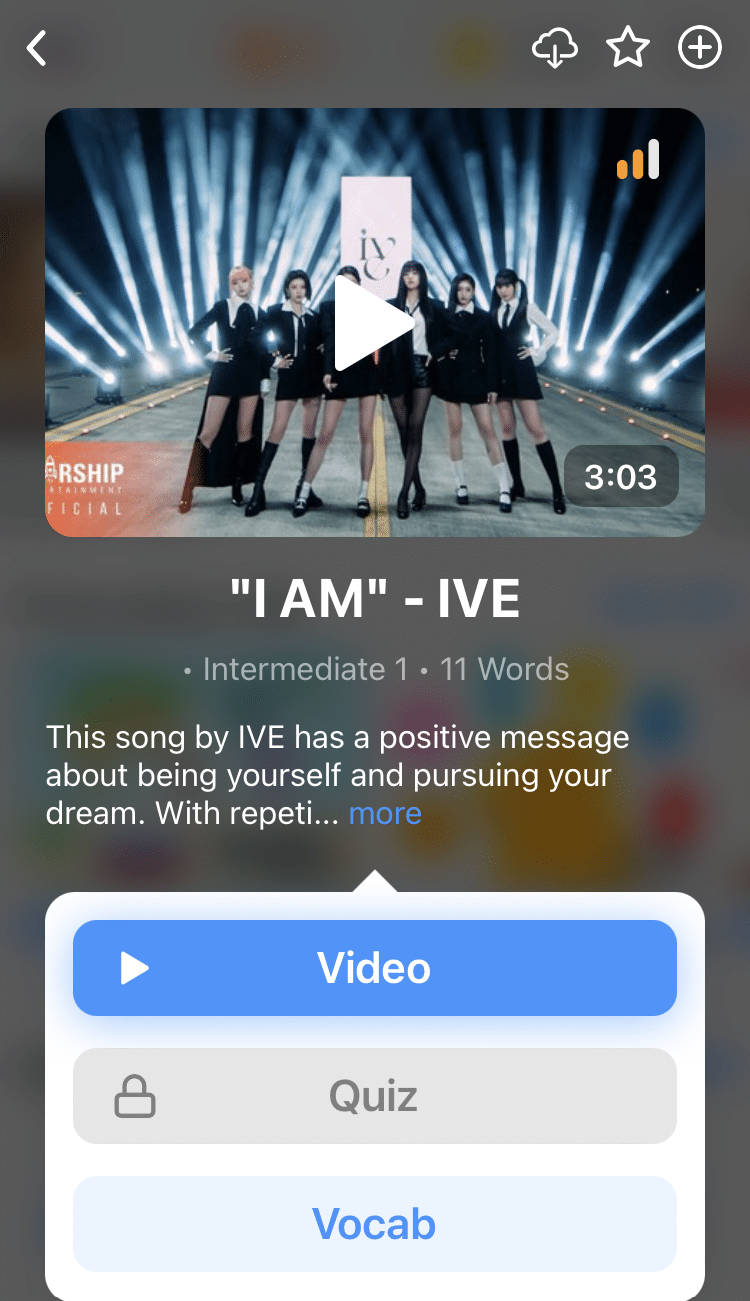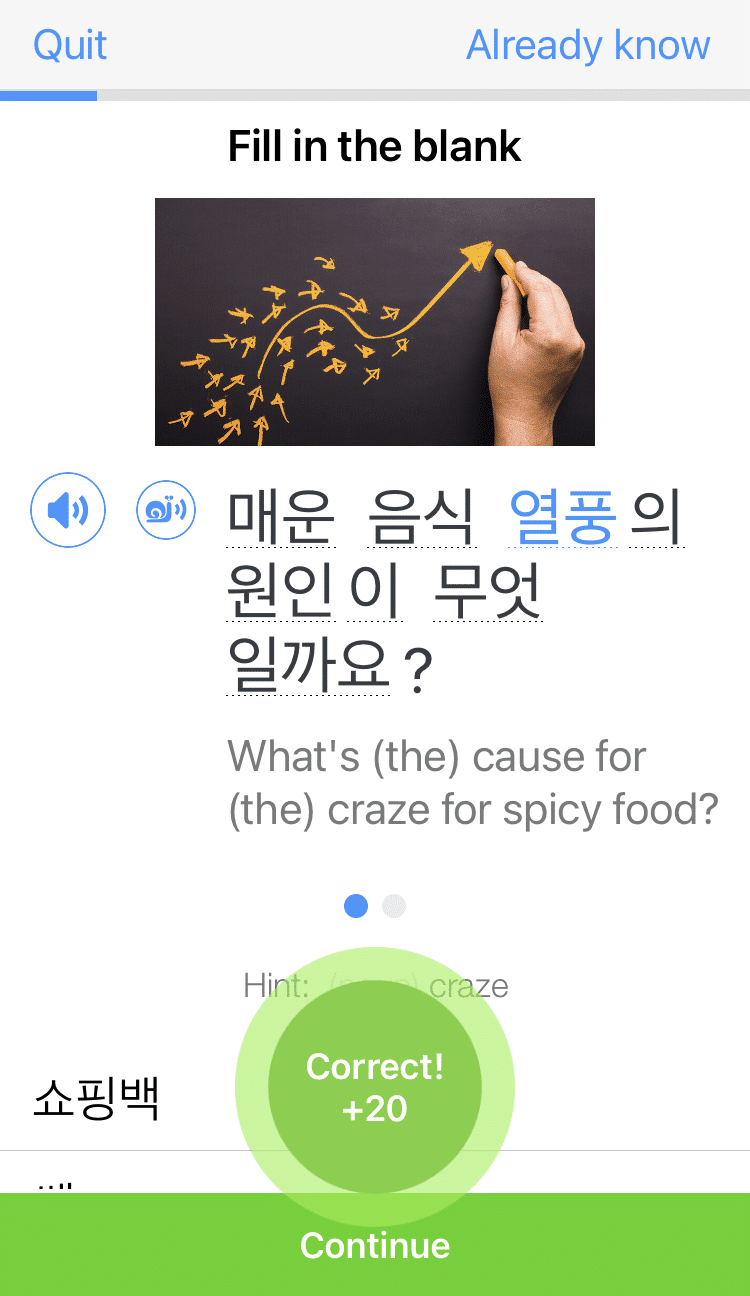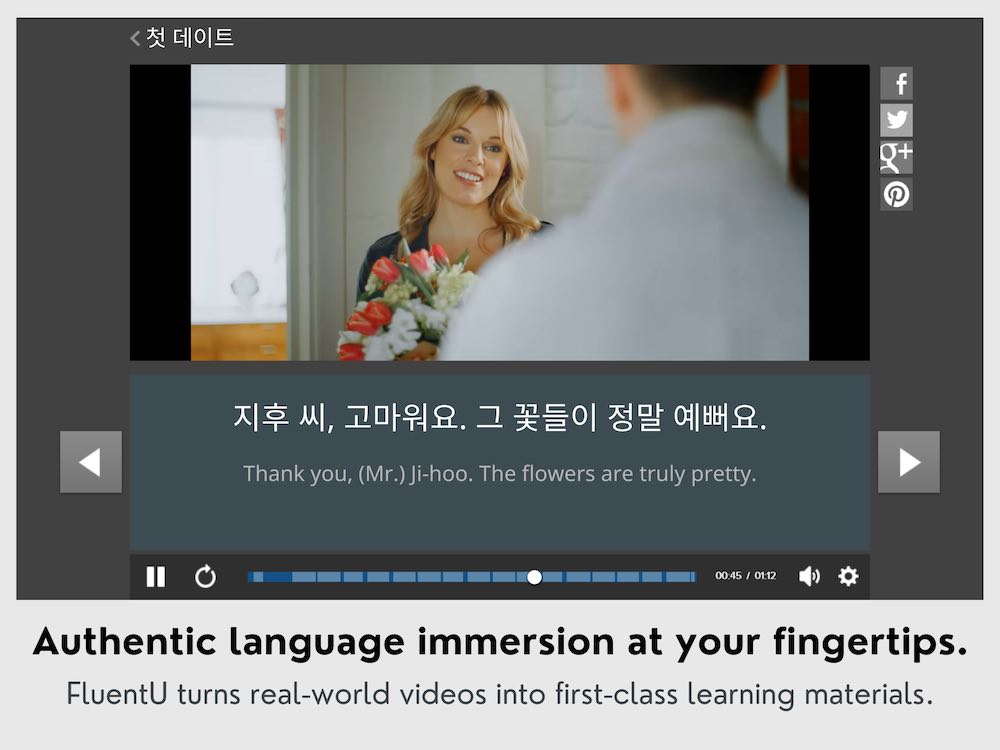
How to Say “English” in Korean: 영어 (yeong-eo)
Even the best Korean learning books won’t prepare you for every encounter and situation. As a Korean language learner, it’s unreasonable to expect you to tackle every real-life scenario in fluent Korean.
Knowing how to request English in Korean can pull you out of many tight spots and get you the right help you need as quickly as possible. That’s why the vocabulary in this post should be able to help you tackle these situations.
Contents
- How to Say “English” in Korean
- How to Say “Do You Speak English?” in Korean
- Vocabulary and Phrases Related to English in Korean
- Why Learn to Say “English” in Korean
- And One More Thing...
Download: This blog post is available as a convenient and portable PDF that you can take anywhere. Click here to get a copy. (Download)
How to Say “English” in Korean
영어 is the Korean word for English.
However, most Korean people would understand if you just said “English” too. The Korean pronunciation of “English” is 잉글리쉬 .
Modern Korean schools typically require basic English education from junior high to high school. So you can trust that most natives (especially the younger folks) will know some crucial English vocabulary.
How to Say “Do You Speak English?” in Korean
There are actually various ways to ask this question.
It depends on how formal you’d like to be. Remember, formality levels can affect Korean verb conjugation (and other parts of the sentence as well).
A good tip to keep in mind: You should generally use the normal level of formality in Korean conversation, especially when the person you’re talking to is basically a stranger. In the context of this scenario, that would most likely be the case.
Here are the many ways you can ask “Do you speak English?” in Korean:
- 영어 할 줄 알아? (casual)
- 너 영어 할 수 있어? (casual/informal)
- 영어(를) 하세요? (polite)
- 영어 할 수 있으세요? (polite)
- 영어 하실 수 있으세요? (formal)
The best way to get a handle on phrases like these—and the level of formality they require—is to get lots of native Korean input. For instance, you might use a language learning program like FluentU to hear real-world examples of Korean conversations.
FluentU takes authentic videos—like music videos, movie trailers, news and inspiring talks—and turns them into personalized language learning lessons.
You can try FluentU for free for 2 weeks. Check out the website or download the iOS app or Android app.
P.S. Click here to take advantage of our current sale! (Expires at the end of this month.)
Vocabulary and Phrases Related to English in Korean
You shouldn’t just stop at learning how to ask if someone speaks English. You’ll likely need more assistance after they respond.
Even if a Korean person doesn’t speak much English, maybe further clarification can help you anyway.
Here are some extra vocabulary and phrases that can help you better communicate what you need. Some of these phrases may even be said by the Korean person you’re talking to.
- 영어로 말해 주세요. — Please say that in English.
- 영어 버전을 갖고 있나요? — Is there an English version?
- 이것은 영어로 무슨 뜻인가요? — What does this mean in English?
- 여기에 영어로 말할 수 있는 사람이 있나요? — Is there an English speaker here?
- 저는 영어만 할 줄 압니다. — I can only speak English.
- 저는 영어 통역이 필요합니다. — I need an English translation.
- 저는 영어를 못해. — I do not speak English.
- 저는 영어를 조금 할 줄 알아요. — I speak a little English.
- 미국 — United States
- 미국 사람 — American person
- 영국 — United Kingdom
- 영국 사람 — English person (from the UK)
- 관광객 — tourist
- 해외 거주자 — expat
Why Learn to Say “English” in Korean
As a native English speaker, you’ll inevitably have moments in which you don’t fully understand the Korean you read or hear. This will especially be the case if you’re in the country of South Korea itself.
In these instances, your priority is to avoid misunderstandings. It’s already a sticky situation when you don’t understand something at all, but a complete mistranslation can lead to even worse consequences.
It’s best to acknowledge the language barrier before things go awry. Even if they can speak and understand some English, a Korean person may still feel uncomfortable or unequipped to talk with you. Once that barrier is acknowledged, you can both utilize tools and methods like translator apps or hand gestures to make the interaction easier for both of you.
This is critically important when you need help. Whether you’re looking for the train station or need urgent medical attention, accuracy is essential for relaying and receiving information.
That’s why it’s best to be honest and know when your Korean skills aren’t yet up to snuff. There’s no shame in wanting to be correctly understood. And certainly, there will be natives who will be happy to accommodate English speakers.
I know you’re eager to use all the Korean you know, which is fantastic and definitely encouraged!
But the best language learner is practical and self-aware. Sometimes, the smartest (and safest) thing to do is to just get an English translation or assistance.
Those experiences will help you grow your Korean skills and inform you as to what to study next.
Download: This blog post is available as a convenient and portable PDF that you can take anywhere. Click here to get a copy. (Download)
And One More Thing...
If you enjoyed this post, you're already halfway to having the time of your life learning Korean with FluentU!
FluentU makes it possible to learn with K-pop videos, funny commercials, entertaining web series and more. Just a quick look will give you an idea of the variety of FluentU videos on offer:

FluentU really takes the grunt work out of learning languages, leaving you with nothing but engaging, effective and efficient learning. It's already hand-picked the best videos for you (which are organized by level and topic), so all you have to do is simply choose any video that strikes your fancy to get started.
Each word in the interactive captions comes with a definition, audio, image, example sentences and more.

Access a complete interactive transcript of every video under the Dialogue tab, and easily review words and phrases from the video under Vocab.

You can use FluentU’s unique Quiz Mode to learn the vocabulary and phrases from the video through fun questions.

FluentU keeps track of what you're learning, and tells you exactly when it's time for review, giving you a 100% personalized experience.
Review sessions use video context to help embed the words in your memory.
Start using the FluentU website on your computer or tablet or, better yet, download the FluentU app from the iTunes or Google Play store. Click here to take advantage of our current sale! (Expires at the end of this month.)



